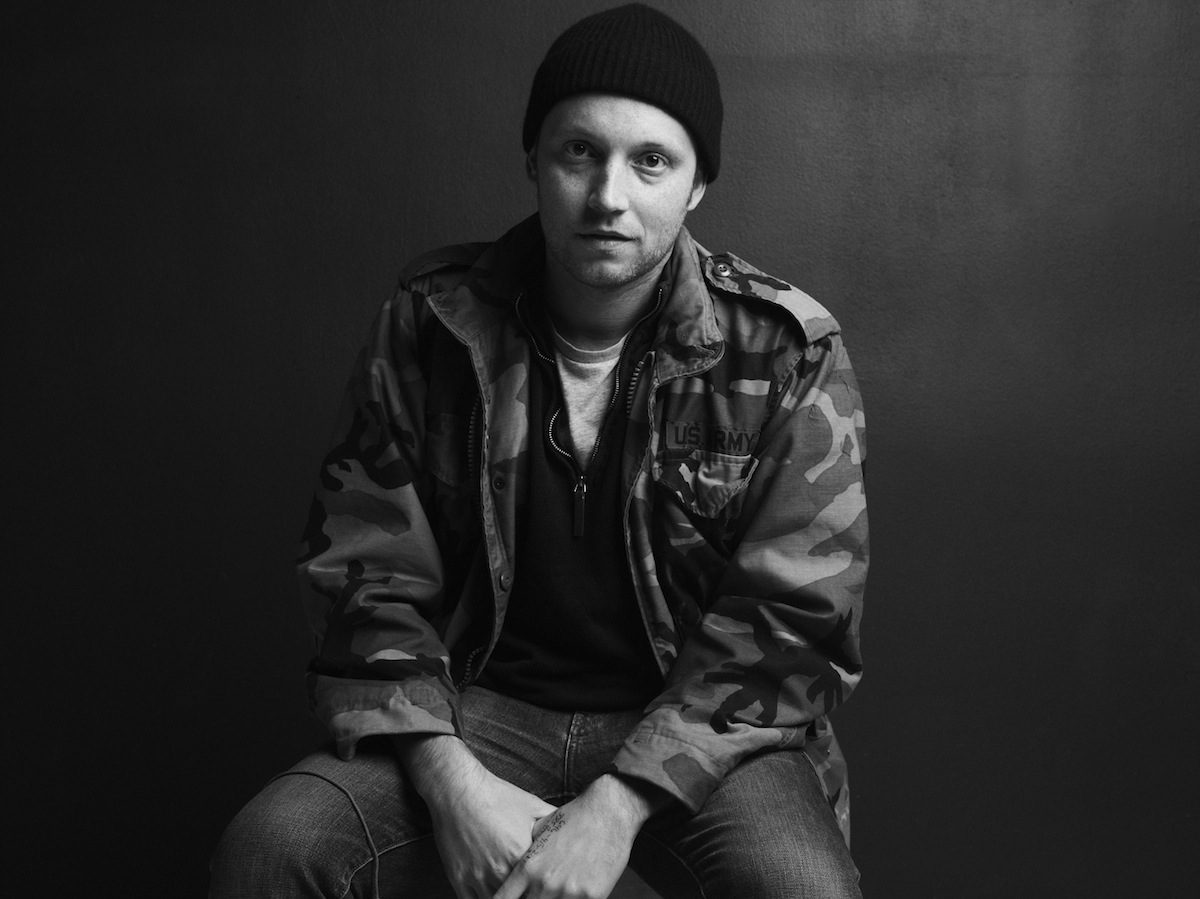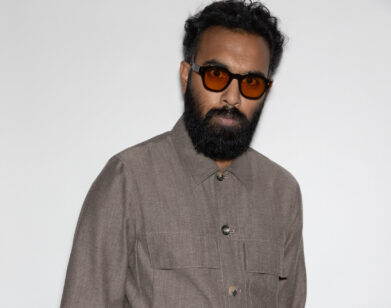Thymaya Payne’s Seascape

While the brash and dangerous tactics of Somali pirates have made the news on and off for the last decade, few journalists or filmmakers have been able to show the real convoluted story behind 21st-century piracy. With machine guns and speedboats replacing swords and swashbuckling, the world of Somali pirates is deconstructed by director Thymaya Payne in his new documentary Stolen Seas. The film follows the harrowing takeover of the Danish ship CEC Future and the exhaustive negotiations between the pirates and the shipping company’s executives as they haggle over the right price to get the crew released. Rather than rely solely on experts and stock footage, Payne journeyed both to Copenhagen, where the shipping company was located, and to Somalia to track down the negotiator Ishmael Ali, who was working for the pirates. Payne’s film avoids characterizing any one person in black and white: we see Ali being both a loving family man and smart negotiator, a 17-year-old pirate listens to American music before storming a multimillion dollar ship, and the shipping company CEO ends up creating an NGO to aid Somalia. We caught up with Payne to ask him about finding pirates and his hope for Somalia.
GILLIAN MOHNEY: Watching the film, I was really impressed at the footage you were able to get inside of Somalia; how did you approach that?
THYMAYA PAYNE: When we started there were only a couple people going in, because their insurance wouldn’t cover it. Now there are more and more people going in. It’s really calmed down a lot, which is good. I think in general, when people go in, they show the war-ravaged country, they don’t show the money market. Life in Somalia is complicated wherever you are. Some places are completely ravaged, and other places are booming as a country.
MOHNEY: It was amazing to watch, because I knew only a few general facts about Somalia and the civil war there. But you were able to show a real vibrancy in the culture and the country. How has the reaction to the film been?
PAYNE: It’s really funny, because I worked on this a long time, and I kind of missed the window for this as an event. This should have come out in 2010; it would have made a lot of money. I had a lot of pressure on me from different forces trying to get it done. But I was like, “You know what, it’s not done. It’s not giving the full picture of life in Somalia.” It isn’t about pirates. The pirates are a symbol of the larger ills. What’s really exciting is it’s like wine or something. It just aged well. Now it’s hitting its stride [because] people are asking questions about Somalia again. It has always been my goal, just to contribute to the discussion of Somalia. What does Somalia say about our time and where we are in the world… It’s kind of African, it’s kind of Middle Eastern, it has a relationship with the US, it has a relationship with Russia. It’s everything all in one tiny, crazy nomadic [country with] 10 million people.
MOHNEY: Did you come at this project from the standpoint of wanting to learn more about the pirates or more about unraveling life in Somalia?
PAYNE: It was a perfect storm. I was traveling around Africa; I had worked my way up by land from South Africa to Tanzania. I was thinking, “Maybe I’ll keep going.” So I was traveling and then the pirates were coming on the news. At the same time, one of my inspirations was this book, it’s this scrapbook by a guy named Dan Eldon. He was a young reporter, and he was killed in Somalia during the first American invasion. I always had this image about Somalia. It collided into a singular obsession. I thought, “Oh I’ll just write a movie about it.” [But] I realized what I really wanted to do was ask questions. So the documentary is formed by questions. The real challenge was how do you turn it into something that isn’t just a white paper on [film]… [The case of the CEC Future] this is one of the few cases where you can get all angles. It helped form the narrative for all the questions we were answering. That was the challenge, how to make it not-boring.
MOHNEY: One of the most impressive parts of the film is that you actually get in-depth interviews with people who participated in the piracy, including the negotiator, Ishmael Ali. How did you find him?
PAYNE: He was doing press. People ask, “How did you find pirates?” I’m like, “I e-mailed them.” Literally I found a stringer, I called him up, I text messaged him: “I’m going to Kinshasa, will you meet with me?” It’s crazy, but it’s not like the olden days. With Ali, I got his email through [the shipping company CEO]. It was the Fourth of July, and I was drunk at a barbeque. I got a call from Somalia and I’m like, “Oh shit, I have to take this.” I took it, and I had an hour and half conversation with him. I like Ali. He’s charming, gracious, really has a lot of opinions about the pirates. He views himself as a version of me, except he does negotiations. He wanted to help and get involved with the movie. I almost gave him a credit it on the movie, he hooked us up with so much stuff. People always want to talk. They want their stories told, because they’re afraid they’re going to die and no one will know their story.
MOHNEY: You had really amazing footage of pirates on one of the ships, how did that come about?
PAYNE: Some of the footage from the boat, I actually taught a Somali guy to use the camera. He got on the boat because he grew up with those guys and they trusted him. Because of trade embargo in Somalia it took two months to get the tapes sent to us. The tape couldn’t go directly from Somalia to the US because of tariff stuff. It had to be sent to Dubai and I had to go get someone to pick it up in Dubai. It was crazy; I was like, “They are going to think I’m a spy. I know I’m on a list, I just know.”
MOHNEY: There is so much going on with Somalia right now, do you think you’re still going to continue to film there or work on stories there?
PAYNE: I’m really excited about Somalia as an opportunity and not as a plague or problem… All I ever heard when I was there, “I don’t want charity. We need investment. We need you to believe in us.” I was like, “I believe in you guys.” You out-negotiate London. I believe in your ability to hustle, legally or illegally… Because of the diaspora, in many ways, they’re global citizens. They have this whole money-lending system that’s super-modern and crazy. They have the best cell phone service I’ve ever had in my life.
MOHNEY: Wait, really?
PAYNE: Yeah, it’s so cheap. It’s 10 cents a minute to call the US… You meet these kids and they’re wearing full hijabs and they’re listening to Beyoncé, meanwhile they grew up in refuge camp. You’re like, “You’re blowing my mind.” If you were ever given the wheel of the car, you would rule the world.
STOLEN SEAS OPENS A WEEKLONG RUN TONIGHT AT CINEMA VILLAGE IN NEW YORK.






